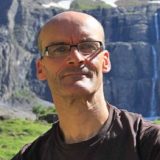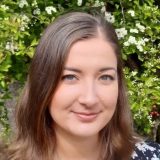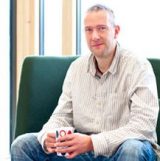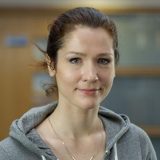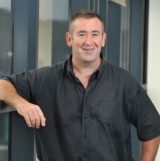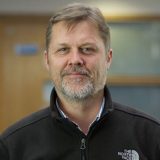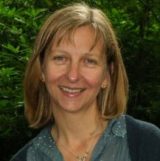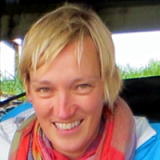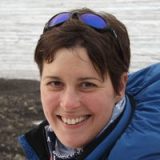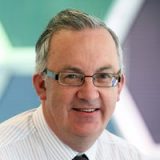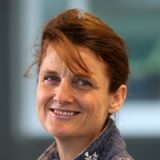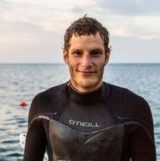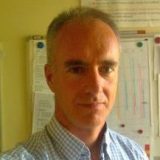Nina is an evolutionary biologist with research interests focused on the evolutionary ecology of sex. She has worked extensively on various aspects of sexual selection and sexual conflict, in particular on the role of selfish genetic elements in reproductive biology.
Gabriel Yvon-Durocher
Gabriel researches the effects of environmental change on the structure and functioning of ecosystems (which comprise groups of species, their interactions with one another and with the physical and chemical environment in which they exist). His work spans multiple levels of biological organisation, from sub-cellular biochemistry to the dynamics of ecosystems, and searches for similarities across aquatic and terrestrial systems. The ultimate goal of his work is to develop a predictive ‘tool box’ to forecast how ecosystems will change in a world increasingly dominated by humans and the oceans.
Michiel vos
Michiel combines approaches from microbiology, evolutionary ecology and population genomics to study bacterial evolution, focusing on horizontal gene transfer, sociomicrobiology and pathogens in the environment. Key projects include exploring the ecological drivers of antimicrobial resistance and virulence in aquatic bacteria.
Rod Wilson
Rod is a comparative physiologist. He aims to provide a more holistic understanding of homeostasis in aquatic animals, both fish and invertebrates, freshwater and marine. This includes studies of how anthropogenic and natural environmental changes impact upon physiology and behaviour in the wild, and how to use physiology to help improve the sustainability of aquaculture (including animal growth efficiency and health, pathogen/parasite resistance, and farm effluent output). He also studies the reverse process: how physiological processes in aquatic animals can influence the regional and global environment in freshwater and the oceans.
Charles tyler
Charles is a reproductive physiologist and environmental biologist. His research interests include mechanisms of endocrine disrupting chemicals and nanoparticle ecotoxicology and assessing population level effects of contaminants in wildlife (primarily fish).
Jamie stevens
Jamie is an evolutionary biologist with interests in molecular ecology, population genetics and evolution. Two key strands are fish population genetics, and parasite systematics and evolution. He focuses on questions in the field of population/conservation genetics, with particular emphasis on applying knowledge of population genetic process to the management and conservation of Atlantic salmon and trout, and a variety of marine organisms, including sea fans and lobster, with the aim of understanding gene flow and connectivity in relation to the design and designation of marine protected areas.
Eduarda santos
Eduarda is an environmental biologist investigating reproductive development and function and the susceptibility of these processes to disruption by environmental stressors. Her research focuses on fish and has ranged from investigating the endocrine control of reproduction to addressing the population level effects of chemical exposure for wild fish, using systems biology strategies.
Aimee Murray
Aimee’s research area is antimicrobial resistance in the environment, particularly due to anthropogenic impacts in wastewater and receiving environments. This includes evolution and ecology of antimicrobial resistance, direct selection at low concentrations and co-selection by other antimicrobials and non-antimicrobial compounds, environmental risk assessment, and developing and validating the novel ‘SELECT’ method for rapid determination of selective concentrations of antibiotics and environmental surveillance of antimicrobial resistance. She has a long-standing collaboration with AstraZeneca and engaging with industry and policy makers.
ilya maclean
Ilya is an applied ecologist interested in climate-vegetation interactions at the scales relevant to management and decision-making. He has expertise in microclimatology, remote-sensing and fine-scale hydrological modelling.
chris lowe
Chris is an aquatic Microbial Ecologist (mainly marine). He looks particularly at algal bloom impacts on shellfisheries (e.g. mussel farms) and reservoirs. He is an expert in Cyanobacteria, working with Canadian partners. His focus is on ecological implications rather than applied science. He has close ties with Plymouth Marine Laboratories, where single cell culture takes place and linked to genomics.
anne leonard
Anne’s research focuses on marine systems and epidemiology. She studies catchment-level processes contributing to the transmission of antibiotic resistant bacteria in coastal bathing waters, with a view to identifying mitigation strategies to reduce the spread of antibiotic resistant bacteria in the environment. She is particularly interested in recreational waters, transmission in coastal bathing waters and microbial genes associated with land uses and re-use of water and crop irrigation.
Brendan godley
Brendan’s wide ranging research interests are in biodiversity conservation. He largely focuses on the study of marine vertebrates (turtles, mammals, birds and sharks) and interdisciplinary approaches to conservation research, including focussing on the issue of microplastics in our oceans.
FEng Mao
Feng’s research interests lie in the intersection of water, ecosystems, society and technologies, focusing on three main themes: (i) hydro-socio-ecological systems under change, (ii) resilience and environmental hazard, and (iii) innovative data technologies for the environment and development. He also works on low-cost sensor networks and participatory monitoring in a sustainable development context.
will gaze
Will research is in antimicrobial resistance in farmed and natural environments, including major elements of environmental sampling and wide-ranging analytical methodologies. This includes AMR evolution in the environment, using in situ and in vivo experiments, landscape scale dissemination of AMR and human exposure and transmission studies. Projects are divided into three main themes: ecology, evolution and public health perspectives. These map onto those identified in successive WHO, EU and UK AMR action plans facilitating interdisciplinary research approaches and joined up thinking.
tamara galloway
Tamara studies the biological effects of environmental pollutants in human and wildlife populations. Using a systems wide approach to address how pollutants damage ecosystems, how animals evolve tolerance and resistance in polluted environments and what makes some animals more sensitive than others. She has worked with funders to develop a predictive capability of the likely outcome for natural populations of pollutants, such as nanomaterials, micro and nanoplastics.
Claire Earlie
Claire’s research covers coastal geomorphology; nearshore hydrodynamics; rocky coasts; coastal cliff erosion; natural hazards; in situ and remote sensing data.
Liz Bagshaw
Liz’s particular research interest is in biogeochemical processes in the cryosphere, and in the development and testing of new technologies to monitor them. She has worked in Antarctica and Greenland, developing new methods for measuring aquatic biogeochemistry in glacial environments and monitoring the impact of physical processes on microbial communities through geochemical changes in meltwater.
Elizabeth chadwick
Freshwater aquatic systems, particularly the Eurasian otter and British amphibians; spatial ecology; contaminants; populations; pathology; Otter Project
Eshwar Mahenthiralingam
Esh’s research includes pathogenesis and ecology of antibiotic resistant Gram-negative bacterial opportunistic pathogens. In addition his work covers bacteria which cause industrial contamination and are prevalent in water, antibiotic producing bacteria and genomics and population biology bacteria.
Frank Hailer
Frank is an evolutionary biologist working at the interface of genomics, molecular ecology and conservation biology. Research interests are broad, focussing on surveying genetic variation within and among species to infer key processes in ecology and evolution, such as speciation, adaptation, introgression and population structuring.
Hefin Jones
Hefin’s research examines trophic interactions in terrestrial and aquatic environments (and the effect of climate change on these); soil biodiversity; population and community ecology.
Ian Vaughan
Ian’s research areas include community ecology; long term ecological changes in British river systems; data analysis and modelling; multiple stressors; land use, climate, hydromorphology and river organisms and trophic interactions.
Isabelle Durance
Isabelle’s specialist research covers freshwater ecosystems; biodiversity; ecosystem services; climate change; environmental change, landscape ecology and catchment science.
Jo Cable
Jo’s research covers experimental parasitology; host-parasite dynamics; fish parasites; ecosystem impacts of invasive species; water-borne human pathogens and zoonotic infections; imaging; molecular ecology; cell biology and fieldwork with aforementioned research areas.
Robert ellis
Rob’s research focuses on adaptation and acclimation in animals exposed to environmental change. He’s interested how the mechanistic understanding of animal physiology can be used to improve the productivity and sustainability of aquaculture in a wide range of production settings, and how aquaculture can be used to help secure future marine ecosystems in the face of climate change impacts.
Peter Coates
Peter is an environmental historian, mainly of the US and UK, but also interested in continental Europe and beyond. His research includes creatures of watery environments (mosquitoes, eels and aquatic and semi-aquatic nonnative invasive species such as American signal crayfish, North American muskrats and American mink), natural history film-making and marine environments.
Angus Buckling
Angus is an experimental biologist interested in links between water and health. He works on evolutionary ecology of microbes, primarily by studying evolution in real time in controlled environments (experimental evolution).
Ross Brown
Ross’ research focuses on refining environmental risk assessment approaches to safeguard aquatic ecosystems from pollution and to facilitate the sustainable development of aquaculture.
Rhys Jones
A specialist in herpatology, parasitology, evolutionary biology and science communication assessment. Rhys works extensively with the media.
Siân Griffiths
Siân’s research focuses on the behavioural ecology and the evolution of fish schooling; consequences of climate change for fish behaviour and river ecology; ecosystem quality and the distribution of fish in rivers.
Steve Ormerod
With a research focus on global change effects on freshwater organisms and ecosystems; river biodiversity and ecosystem services Steve is a leading specialist in riverine and wetland bird ecology.





